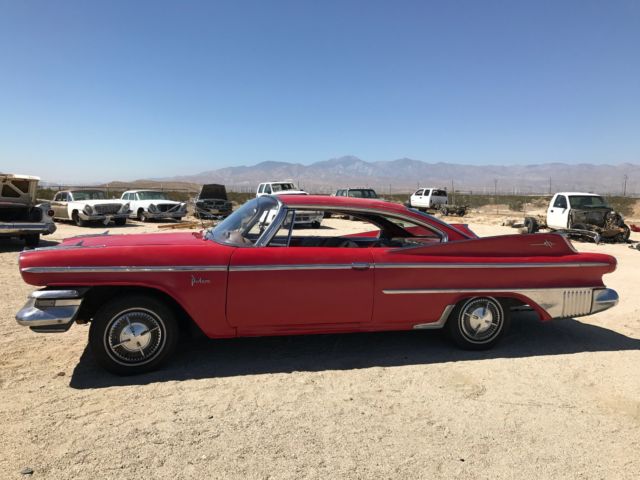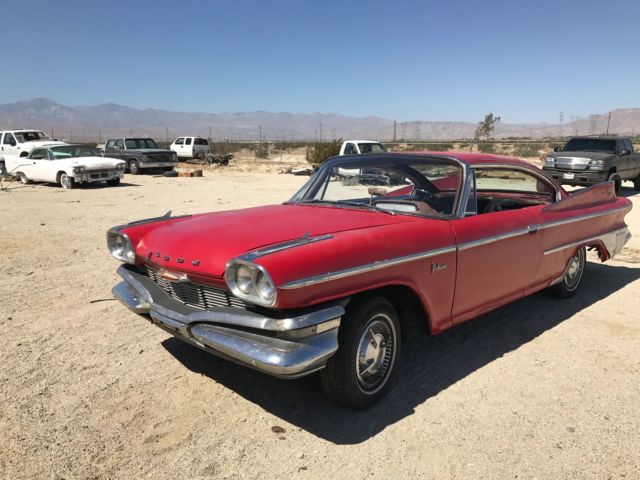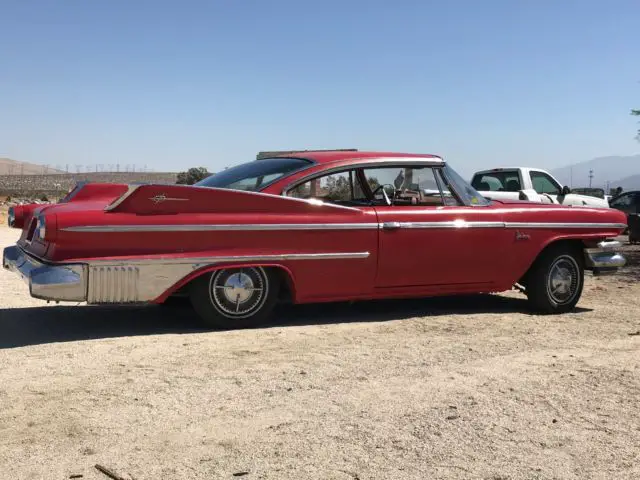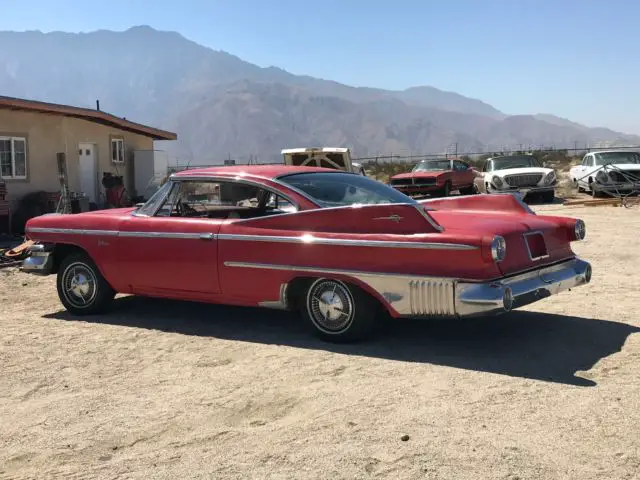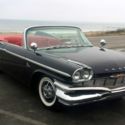1960 Dodge Polara Phoenix D500 Sonoramic Matador Chrysler 300 Desoto Fury 1959
| Make: | Dodge |
| Model: | Polara |
| Type: | Coupe |
| Year: | 1960 |
| Mileage: | 100,000 |
| VIN: | 196019601960 |
| Color: | Red |
| Engine: | 383 |
| Drive type: | RWD |
| Interior color: | Red |
| Vehicle Title: | Clear |
| Item location: | Palm Springs, California, United States |
1960 Dodge Polara Additional Info:
Well time to let my 1960 Dodge Polara go to a new owner. I am putting all my efforts on the convertible version. So this has to go...super solid car have had since 1995. Needs the interior redone seats carpet etc. I can't remember the last time a coupe has been for sale on ebay. If your a serious buyer message me your thoughts on a price or offer. 383 4bbl car. Good Luck and thanks for visiting The Mopar Ranch.
The 1960 Polara and other full-sized Dodges featured styling cues carried over from 1959 models, itself an evolution ofVirgil Exner's "Forward Look" cars introduced in 1957. The top-of-the line Polara andDodge Matadorcontinued to ride on the 122-inch (3,099mm) wheelbase of their predecessors, while a new line-up of still full-sizedDodge Dartsrode on a shorter 118-inch (2,997mm) wheelbase. The Polara was available as a 2-doorconvertible, 2-doorhardtopcoupe, 4-door hardtopsedan, 4-door hardtopstation wagon, and conventional (pillared) 4-door sedan.
Like these cars, both 1960 full-sized Dodges continued with the make's styling hallmarks of stacked "jet pod" tail lights, however, the size of the lights was greatly increased compared to the previous year's lamps, with the lower lights set into the rear bumper. The design also incorporated Dodge's trademark shortened tail fins, which, on the Polara, included small vertical tail light lenses placed on the vertical surface at the back of the fin; again, the purpose of the shortened fin was meant to exaggerate the length of the "jet pods" holding the tail lights.
The fins on Darts were shorter both in length and height because unlike the full sized Dodge's, the Polara and Matador, the Darts were based on the Plymouth and used much Plymouth sheet metal forms and the Plymouth rear door. The Plymouth rear door did not have any part of the fin whereas on the full sized Dodges the fin actually started on the rear door (on the 4-doors) and continued back from there. This allowed the fin to start sooner, on the door, and end sooner, relative to the tip of the round tail light and still appear as long or longer than on the Dart. The net effect was that the fins on the Dart look stunted whereas on the Polara and Matador the fins appear in proper proportion to the rest of the car. Up front, the car featured a small grille consisting of eight stacks of anodized aluminum rectangles nested in a massive (and complex) chrome front bumper assembly. As the top model in the line-up, the Polara featured better interior fabrics and trim treatments. Polaras also received more trim on the outside of the car, most notably a chrome stone guard aft of the rear wheel housings, a full-length chrome spear, and a wide chrome base to the chrome spear atop the headlight housings.
For 1961, Dodge dropped the Matador, leaving the Polara as the sole "senior" Dodge model. Darts on the shorter wheelbase continued. For 1961, Exner's styling department reversed the car's fins, making them taller as they flowed toward the rear window. As the fins sloped towards the rear of the car, they cut slightly towards the center (to allow the single tail light housing on each side) of the rear of the vehicle, wrapping downward and then back along the side fender to form a C-shaped line accentuated in chrome. The overall effect made the rear of the car seem to "pucker" from the angles the design created. Up front, the massive bumper treatments that had been a Dodge hallmark since 1957 were replaced with a simple bar design, above which was a massive concave grille shared with the Dodge Dart.
The 1961 styling overhaul of the Dodge line-up was different from anything else on the US market at that time (save the 1961Plymouth, which was equally unique in its styling) and consumers voted on the 1961 restyle with their car-shopping dollars. Sales of fullsize Dodges plunged to their lowest levels since the firms founding in 1914, with only 14,032 units produced in the United States. For the second straight year, the make was carried by the Dart which saw sales of 142,000 units for the year. Total Dodge sales for 1961 were down 53% compared to 1960, dropping the make from sixth in the American market to ninth place.




